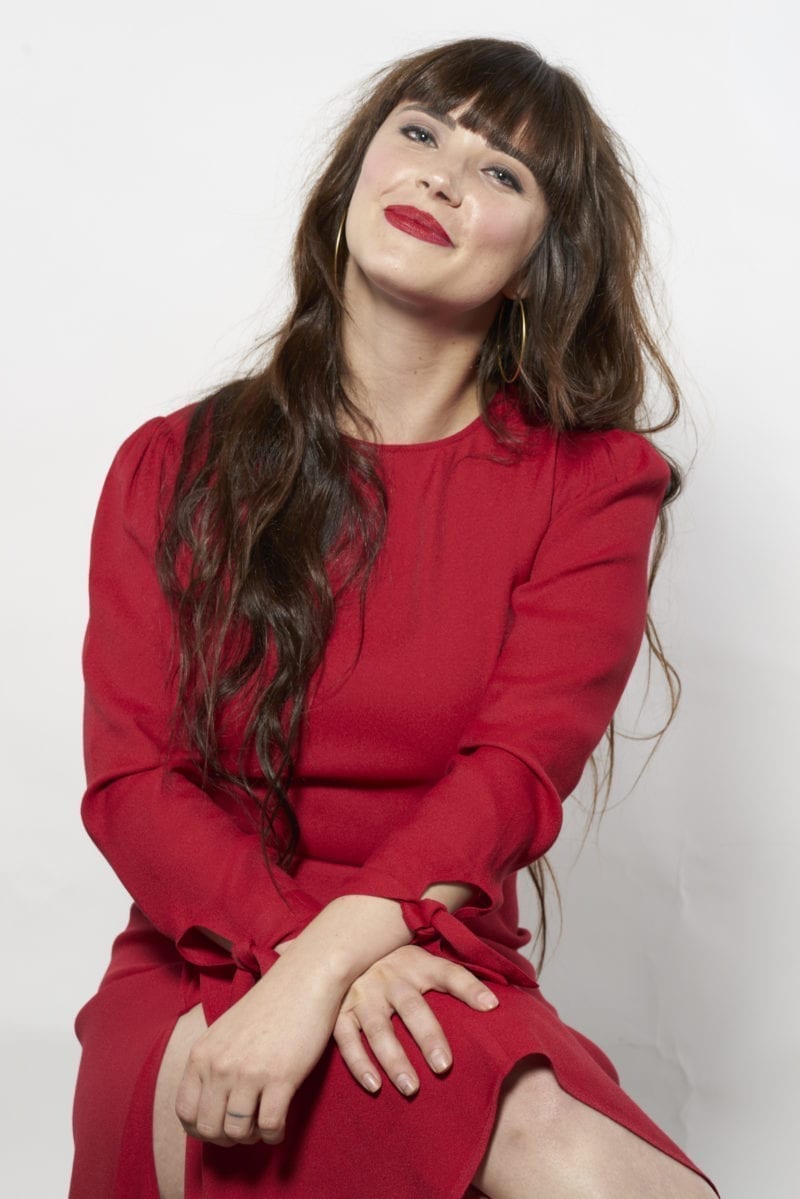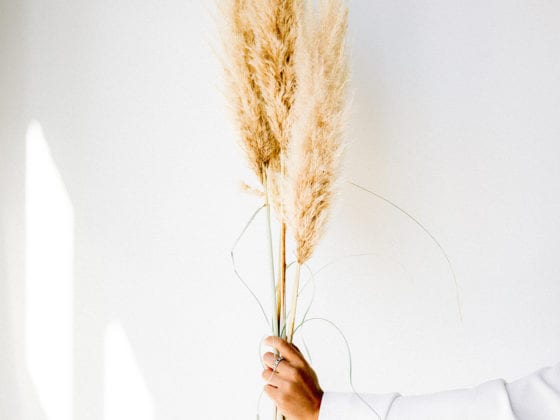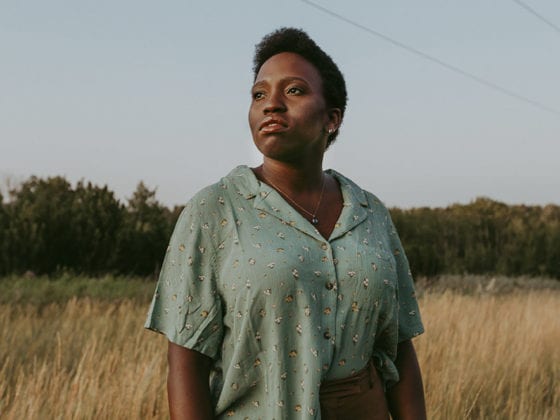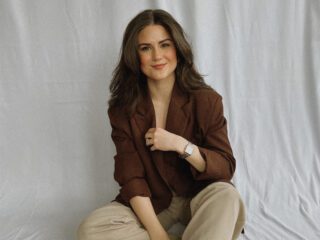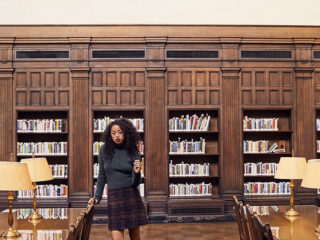“Real Women, Real Work” is a Darling series about everyday women who work in various fields including business, entertainment, science and education. We want to get to know the WHY behind their WHAT and get an inside look into different industries.
At just 23 years old, Kaitlin Christine had a decision to make—whether or not to remove her breasts and ovaries. Like her mother, Lise Clark, who died from cancer just a year before, Christine carried the BRCA1 genetic mutation, which predisposes a person to multiple cancers at a young age. Unlike her mother, Christine had the information to take action to ensure she wouldn’t die of cancer.
“No one I knew was battling with the decision of essentially amputating their breasts—none of my family members, none of my mom’s friends and certainly none of my peers,” Christine explained. “I felt incredibly alone.”
Today, Christine has made it her mission to empower and educate women, to know their cancer risks and to ensure that other women do not have the same experience. She is the founder of Gabbi, a personalized digital platform that makes women the expert on their bodies. The name Gabbi was inspired by Christine’s mom—Lise Gabrielle Thevenet Clark. Growing up, Christine had always loved the name Gabrielle. Like her mother, Christine was loud, opinionated and strong—traits women are often criticized for.
“I think one of the strongest qualities of my mother, as well as women in general, is that we share information,” Christine explained. “So Gabbi empowers women to Gab—to share information about their bodies and their health.
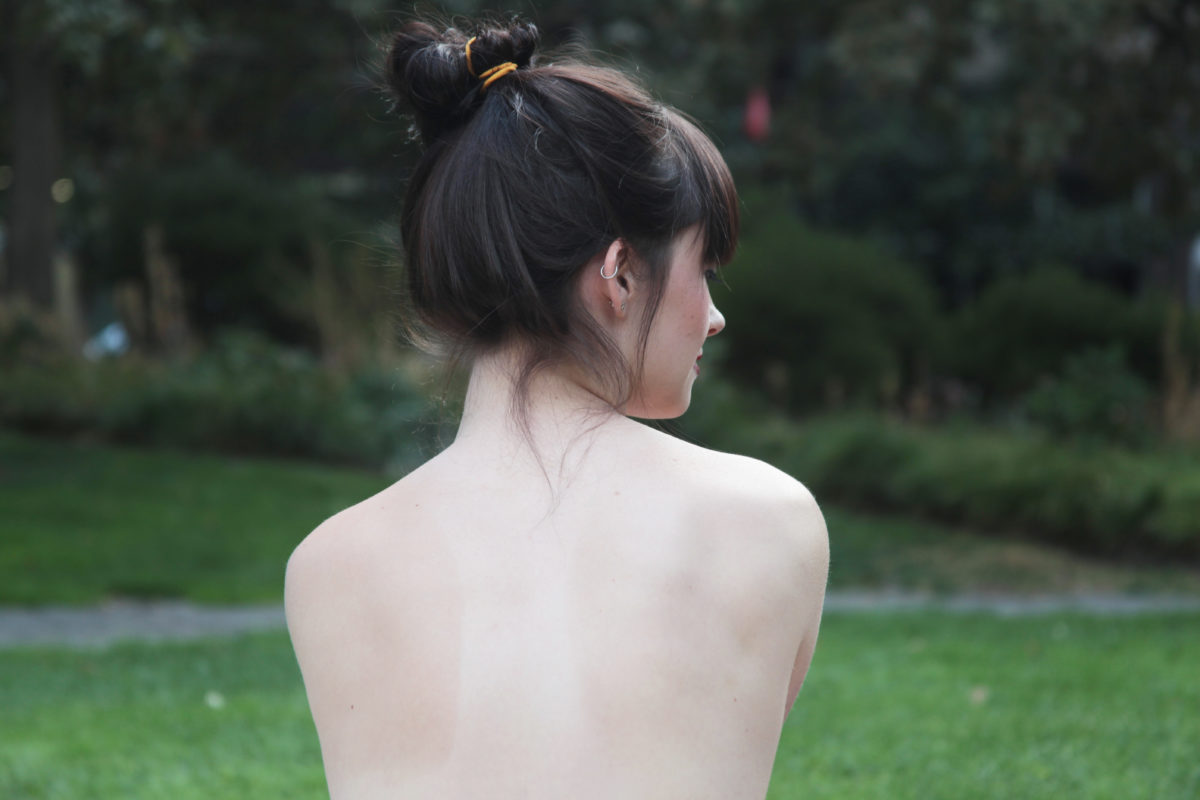 Christine’s mom, unfortunately, did not have access to the information she needed. She did not know that if someone in your family has breast cancer before he or she turns 50, on your mom’s or dad’s side, then you are wise to consider genetic testing. She was not given the option to have her breasts and ovaries removed.
Christine’s mom, unfortunately, did not have access to the information she needed. She did not know that if someone in your family has breast cancer before he or she turns 50, on your mom’s or dad’s side, then you are wise to consider genetic testing. She was not given the option to have her breasts and ovaries removed.
It was in the months after her mom’s passing, when Christine noticed two lumps in her breasts, that she took her mother’s advice to get checked. Although she did not have expertise in women’s health at the time, Christine knew her body, and she became her own advocate—demanding testing, demanding to have the two lumps in her breast examined.
She became her own advocate—demanding testing, demanding to have the two lumps in her breast examined.
“I again had to fight for even a mammogram,” Christine said.
After the mammogram, an MRI, ultrasound and biopsy, the result of the biopsy was precancerous.
“The radiologist looked at my age and that result and said, ‘It’s just dense breast tissue,’” she recalled.
After consulting with physicians, family, friends and members of her support group at Bright Pink, a national nonprofit that focuses on early detection and prevention of breast and ovarian cancers, Christine decided to remove her breasts with a prophylactic bilateral mastectomy. Four days after her surgery, she received the pathology report. She tested positive for breast cancer— she was 23 years old.
Today, five years later, Christine has worked for Bright Pink for two years. She has also worked as the Hereditary Cancer Specialist for the No. 1 genetic testing company in the world for almost four years.
Earlier this year, when her transvaginal ultrasound came back with some concern, Christine made the decision to have one ovary and both fallopian tubes removed.
“I am very well educated on women’s health and very in tune with my own body now,” Christine explained. “I knew I didn’t want to have children and if there was already something showing up that was suspicious, I had the ability to make sure it didn’t go any further.”
Prompted by her mom’s story, as well as working in healthcare and getting a behind-the-scenes look into “how screwed up our healthcare system is,” Christine began Gabbi to have conversations with women and share her personal health journey.
Gabbi helps women know their bodies through four ways:
1. Risk Assessment
A risk assessment calculates your lifetime risk of various preventable diseases.
2. An Action Plan
A personalized action plan is created for you that prompts you to take action and decrease your risks over time, starting now.
3. Community
You are directed to communities of women who have similar risks and experiences and supports you in your path to becoming the expert on your body.
4. Content
You are given access to curated, quality content that you can trust and that does not invoke shame, but rather encourages you to know your body and addresses some of the stigmatized experiences we all face as women.
Currently, Christine is working to build out an early version of the Gabbi community platform as a resource for women with similar risks and experiences. The company will also be launching a service that allows users to hire an expert in breast health to attend a doctor’s appointment with them, ask the right questions and advocate for themselves. In addition, Gabbi is launching a crowdfunding campaign on iFundwomen in early November, where early versions of these resources can be found too.
To this day, Christine counts her mom as the inspiration behind Gabbi.
“Her optimism, strength and energy was contagious,” Christine said. “Her determination to continue enriching women’s lives was remarkable.”
For women who might be hesitant to get tested, Christine encourages prevention. 60 percent of cancers can be prevented, but if you don’t know what your risks are, then there is nothing you can do to prevent them.
Christine’s advice to someone who is hesitant to get tested is,”The risk you have right now is the exact same risk as when you get tested. The difference is that once you get tested, now there is something you can do about that risk.”
Gabbi gives you community on the journey of prevention. Instead of going alone, you are surrounded by a community of women with similar experiences. It allows you to share and ask questions—with women just like you. It was Christine’s community at Bright Pink that ultimately helped her make the decision to have her breasts removed—strong, smart, beautiful women with similar experiences with breast or ovarian cancer.
“I want women to not feel lost and to not have the experience my mom did,” Christine explained. “I want to be a beacon of hope and strength—like my mom.”
Reach out to Christine at kaitlin@begabbi.com or follow Facebook, Instagram, Twitter or LinkedIn, and sign up for the mailing list to be the first to join when the app launches.
How can you integrate breast cancer early detection and prevention practices? Are there ways you can better advocate for your health?
Images via Kaitlin Christine
